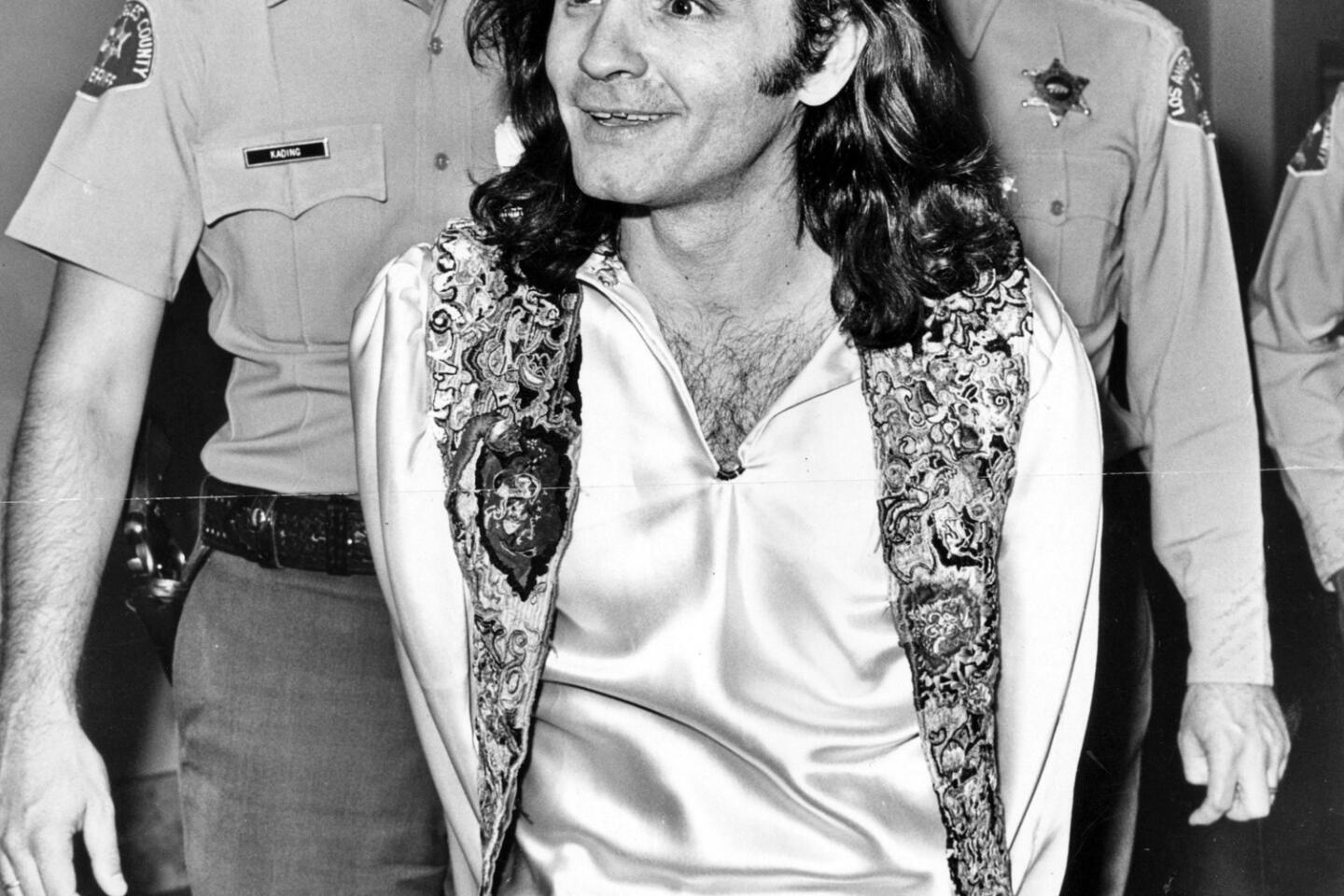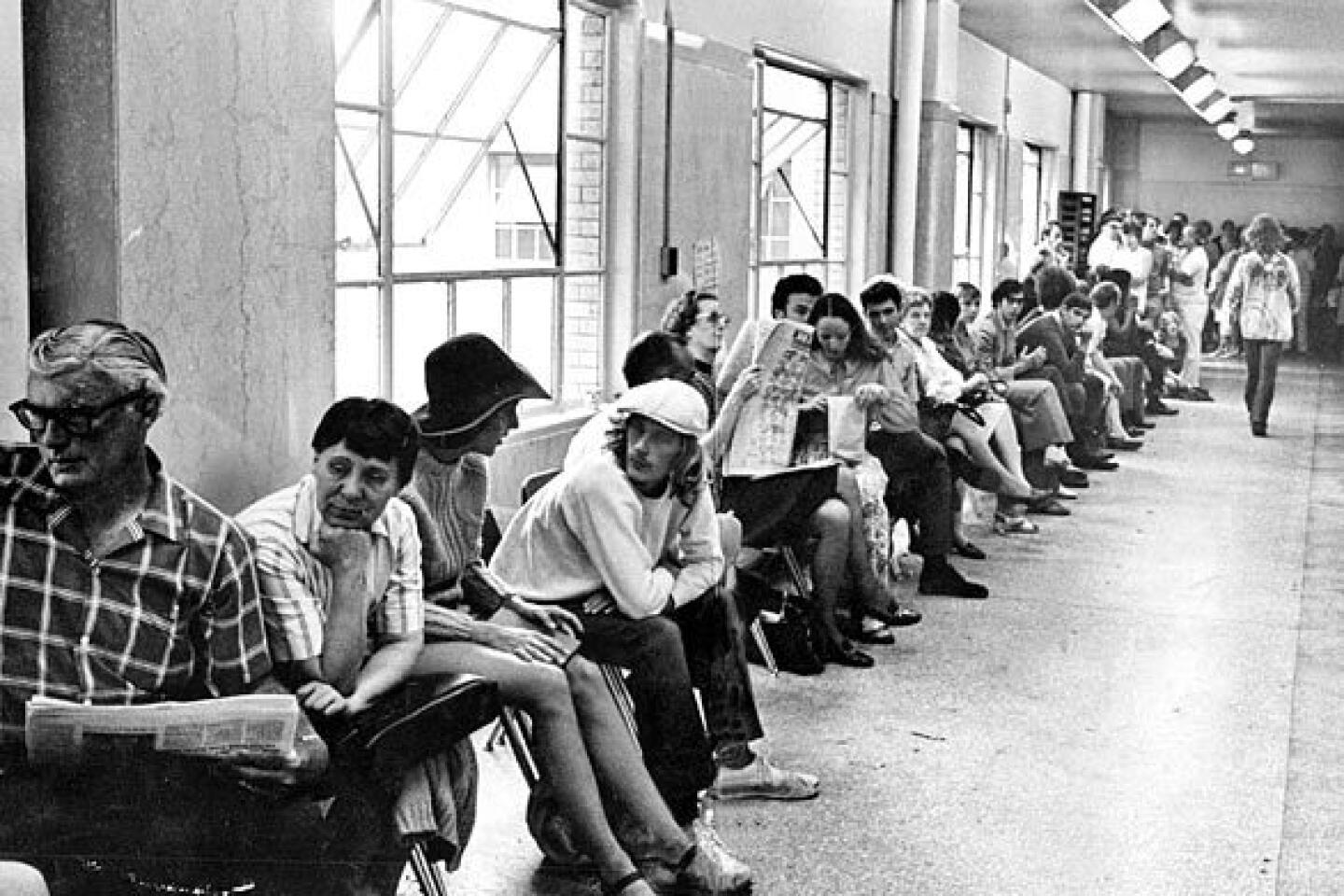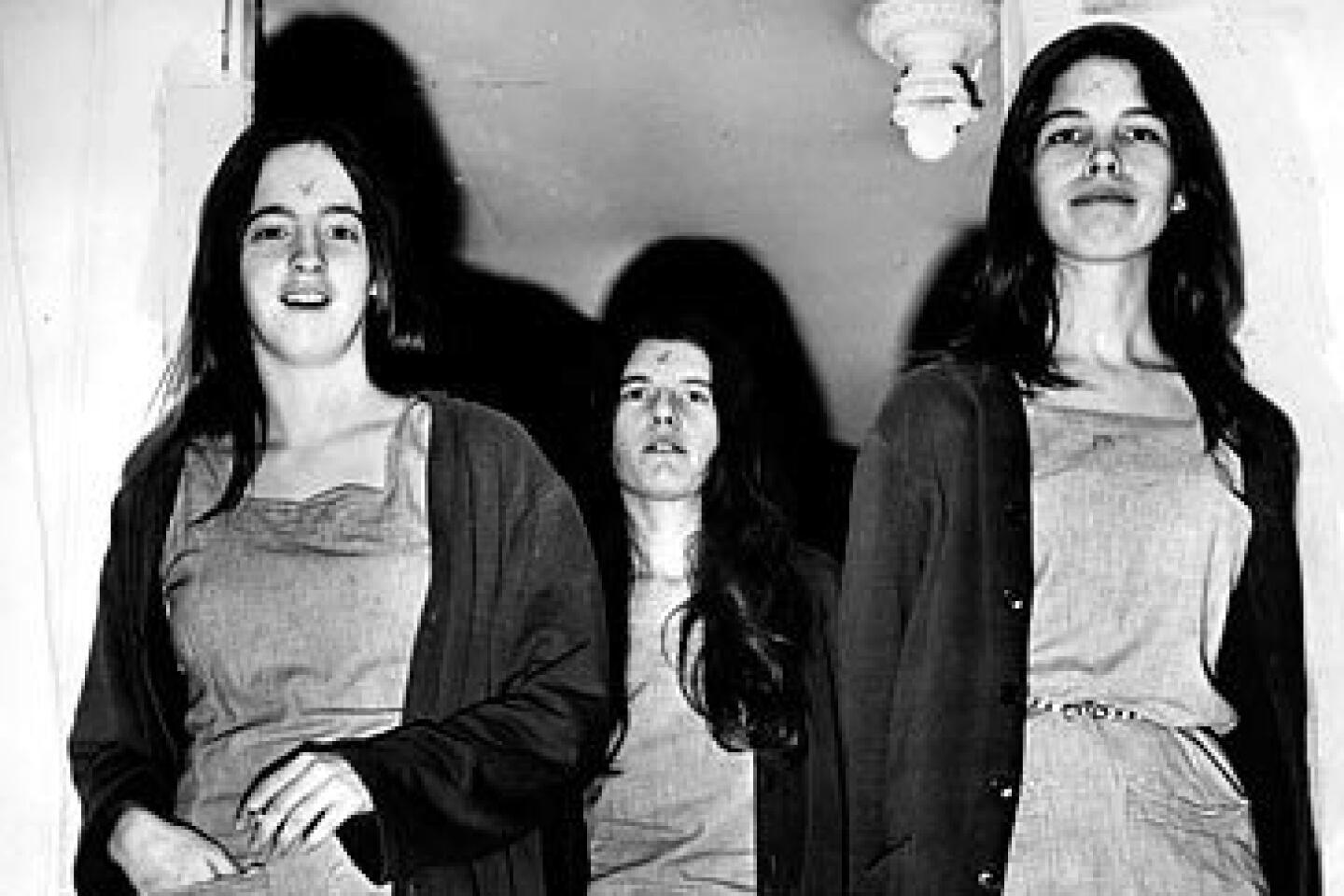LAPD reviewing Manson follower tapes in hunt for new clues
- Share via
After a lengthy battle, Los Angeles Police Department detectives and prosecutors have decades-old audiotapes that could shed new light on other cases potentially connected to the Charles Manson killing spree.
LAPD Cmdr. Andrew Smith said the department’s elite Robbery Homicide Division, along with Los Angeles County prosecutors, are starting to review those tapes of conversations between one of Charles Manson’s most fervent followers and his late attorney to see whether it can help solve more cases from that period.
U.S. District Judge Richard A. Schell in March ruled Charles Watson waived his right to attorney-client privilege when he allowed the lawyer to sell the tapes to an author who wrote a book on Watson.
The LAPD did not take immediate custody of the tapes because of the potential of appeals by Watson.
LAPD robbery-homicide detectives sought the tapes because they believe that during the several hours of conversations, Watson “may have discussed additional unsolved murders committed by Manson followers.”
Investigators believe the so-called Manson family may have been responsible for more than the nine slayings the members were officially tied to or convicted of four decades ago.
Over the years, people including Manson and his prosecutors have said his followers were connected to more killings. A bankruptcy judge ruled last year that the LAPD can have the tapes that were part of the lawyer’s estate.
Watson, however, appealed that ruling, claiming they were privileged. Smith said the department owes it to the victims and their families to ensure every facet of the case is thoroughly and completely investigated. Watson has denied the tapes will shed any new light on the killings.
But the tapes could provide the first new clues concerning the killings in decades. Watson is serving a life sentence for killing Sharon Tate and four others.
Detectives until now had not been able to get the tapes, but Watson’s attorney died in 2009 and the attorney’s law firm filed for bankruptcy. Watson’s decision to sell the tapes to a coauthor of his 1978 book “Will You Die for Me? The Man Who Killed for Charles Manson Tells His Own Story” waived his attorney-client privilege, the judge ruled.
Manson prosecutor Stephen Kay has said Manson bragged about additional killings. Over the years, questions have persisted about a man’s apparent suicide in England, the drowning of an attorney in Ventura County and whether bodies are buried at the California ranches the cult called home.
There are also the killings of two Scientologists and separate slayings of two women in Hollywood Hills.
Paul Dostie, now a retired Mammoth Lakes police detective who has studied the killings said he came to believe bodies of victims of the Manson family could be buried under the Barker Ranch in Death Valley.
The slayings for which the Manson family were convicted all occurred in the summer of 1969. In late July, Gary Hinman, 34, a musician, was stabbed to death after refusing to turn over his money and property to Manson.
About a week later in early August, four Manson followers — Susan Atkins, Patricia Krenwinkel, Watson and Linda Kasabian — dressed in dark clothing and carrying knives, made their way through the Hollywood Hills to the Benedict Canyon estate rented by Tate and her husband, director Roman Polanski.
Steven Parent, 18, a friend of the caretaker, was the first to die. Before being stabbed to death, Tate, 26, begged for her unborn child to be spared. Also killed were hairstylist Jay Sebring, 35, Voytek Frykowski, 32, a friend of Polanski, and Abigail Folger, 25, a coffee heiress and Frykowski’s girlfriend. Tate’s blood was used to smear the word “PIG” on the front door of the home.
Later, Manson himself entered the Los Feliz home of Leno LaBianca, 44, owner of a small supermarket chain, and tied up LaBianca and his 38-year-old wife, Rosemary. He left them to die at the hands of Watson, Krenwinkel and Leslie Van Houten, who butchered them with knives and forks from the LaBianca kitchen.
Donald “Shorty” Shea, a hand at the Spahn Ranch in Chatsworth, where the Manson family lived for a time, would be killed later and his body concealed on the ranch for years. He was the last victim whose killing yielded a conviction.
ALSO:
Travelers hit the roads and skies for Memorial Day weekend
Dozens of aftershocks shake Northern California after 5.7 quake
Boy in critical condition, pair held on suspicion of attempted murder
More to Read
Sign up for Essential California
The most important California stories and recommendations in your inbox every morning.
You may occasionally receive promotional content from the Los Angeles Times.














